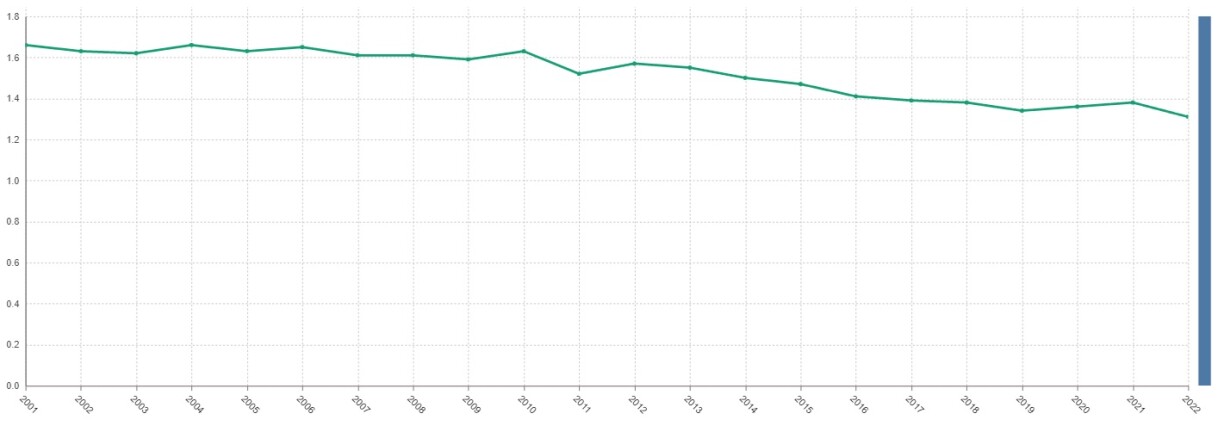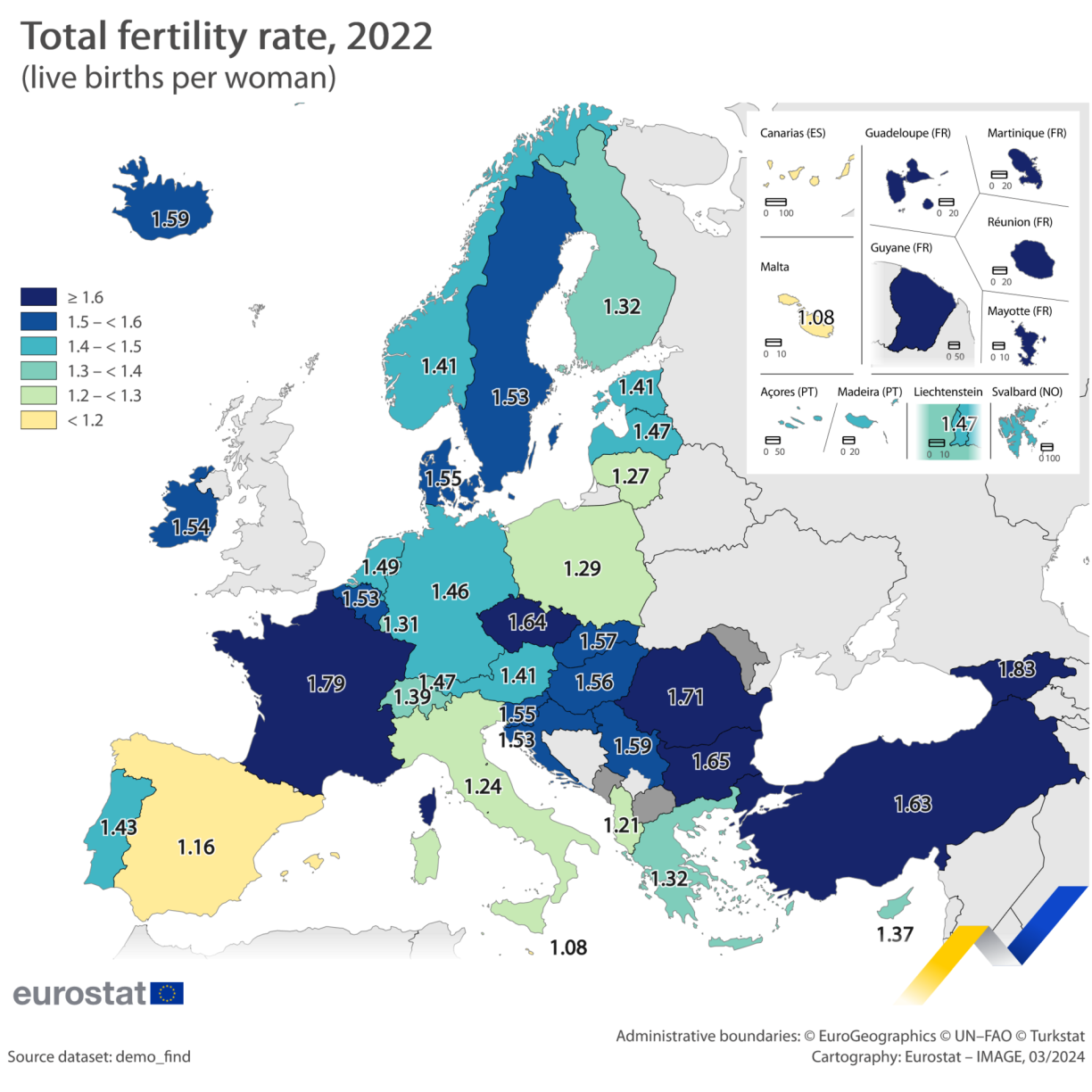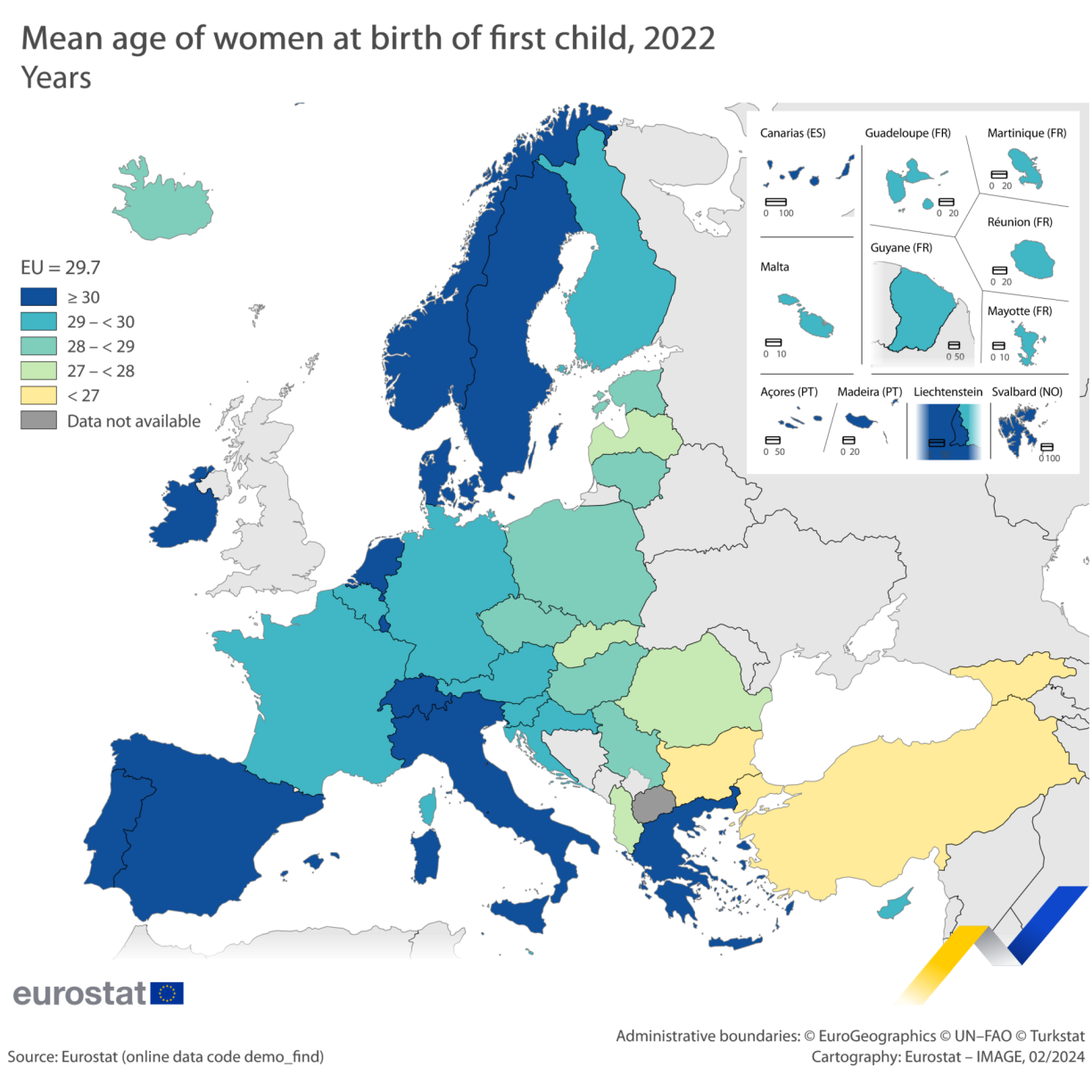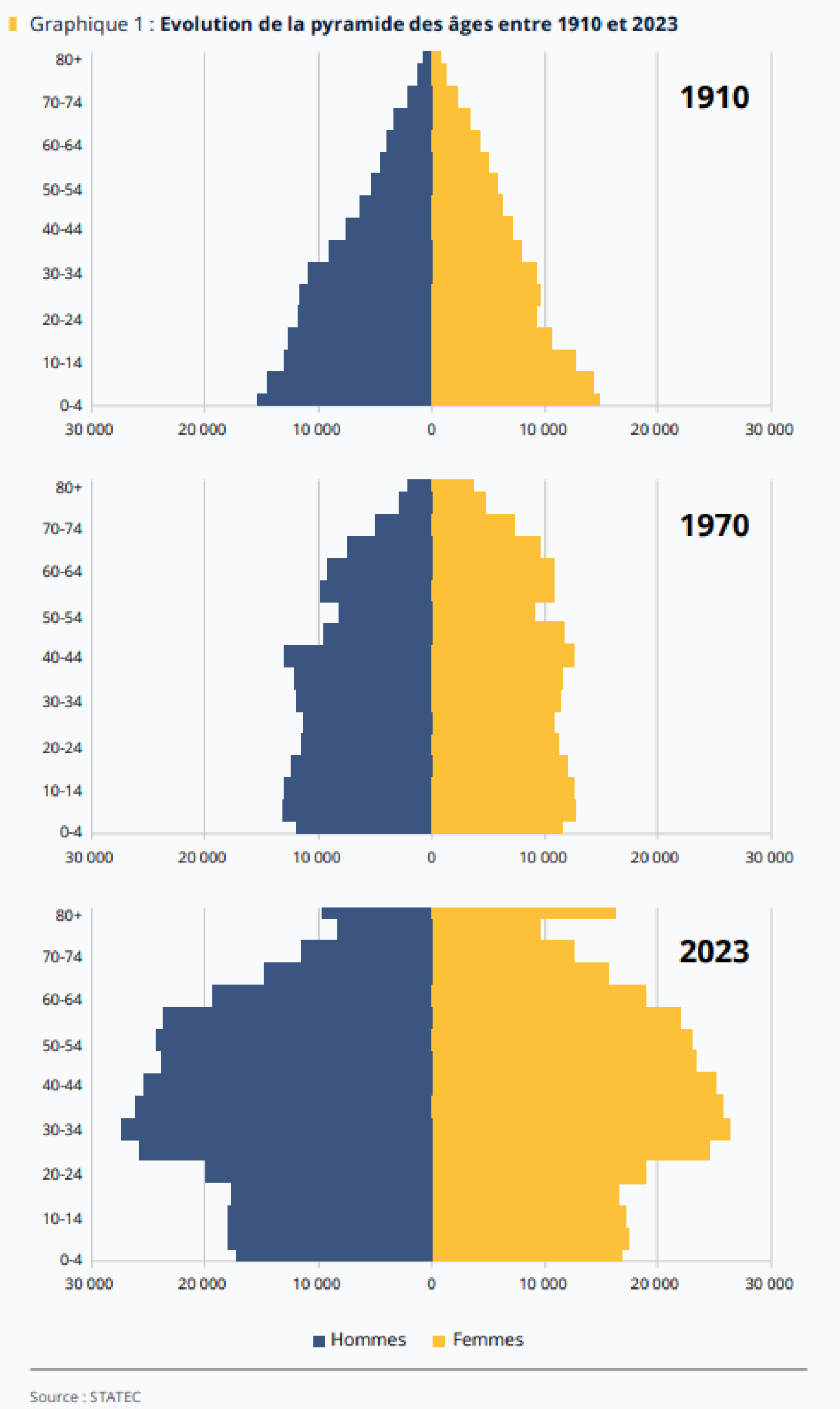
In 2022, 3.88 million babies were born in the EU, 6,495 of which took place in Luxembourg.
It could be said that the Grand Duchy is sparing no effort to support the birth rate, offering extended parental leave with high remuneration, breastfeeding breaks at work, and a generous amount in child benefit. But in spite of these measures, the fertility rate has been falling for years, according to Eurostat.

In 1960, Luxembourg counted an average of 2.29 children per woman. This rate dropped to just 1.31 in 2022, falling well below the EU average of 1.46. France registered the highest birth rate in 2022 with 1.79, with Malta coming in last at 1.08. In Belgium the birth rate was 1.53, 1.46 in Germany and 1.43 in Portugal.

In Luxembourg, first-time mothers are having children later in life, which could be contributing to the decline in birth rate. On average, women in the Grand Duchy have their first baby after the age of 30 - in fact, the average age for first-time mums was 31.3 years in 2021.

Theoretically, however, a population with fewer births is considered to be an ageing population. In the latest report by Statec, viewed relatively, the number of young people aged 0-19 is decreasing, while the percentage of the population aged 40-64 and over 80 is increasing.
In 1910, Luxembourg’s age pyramid was accurately represented by the below graph, but in 2023, it is less of a pyramid, swelling to uneven proportions at its centre and summit. This demographic imbalance could lead to a number of challenges, including the financing of Luxembourg’s pensions system.

Nonetheless, the situation could be worse. Luxembourg’s age rate is still relatively stable in comparison to other EU member states. According to Eurostat , 50% of the Grand Duchy’s inhabitants are aged under 40 years old, while the median age is around 44 years old in the EU.
This statistic is largely due to Luxembourg’s immigration rates and the naturalisation process for foreign citizens. “This surplus of people of working age is attributed to migrants who settle in Luxembourg for profession reasons,” says Statec.
This rejuvenation fuelled by immigration is supported by the data: the average age among Luxembourgish women is 42.3 years, compared to 38.4 for foreign nationals in the Grand Duchy. In addition, 46.8% of newborns in Luxembourg hold foreign nationality.